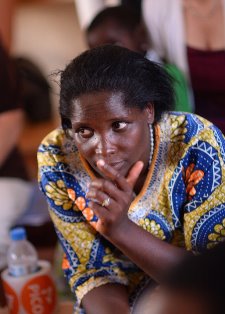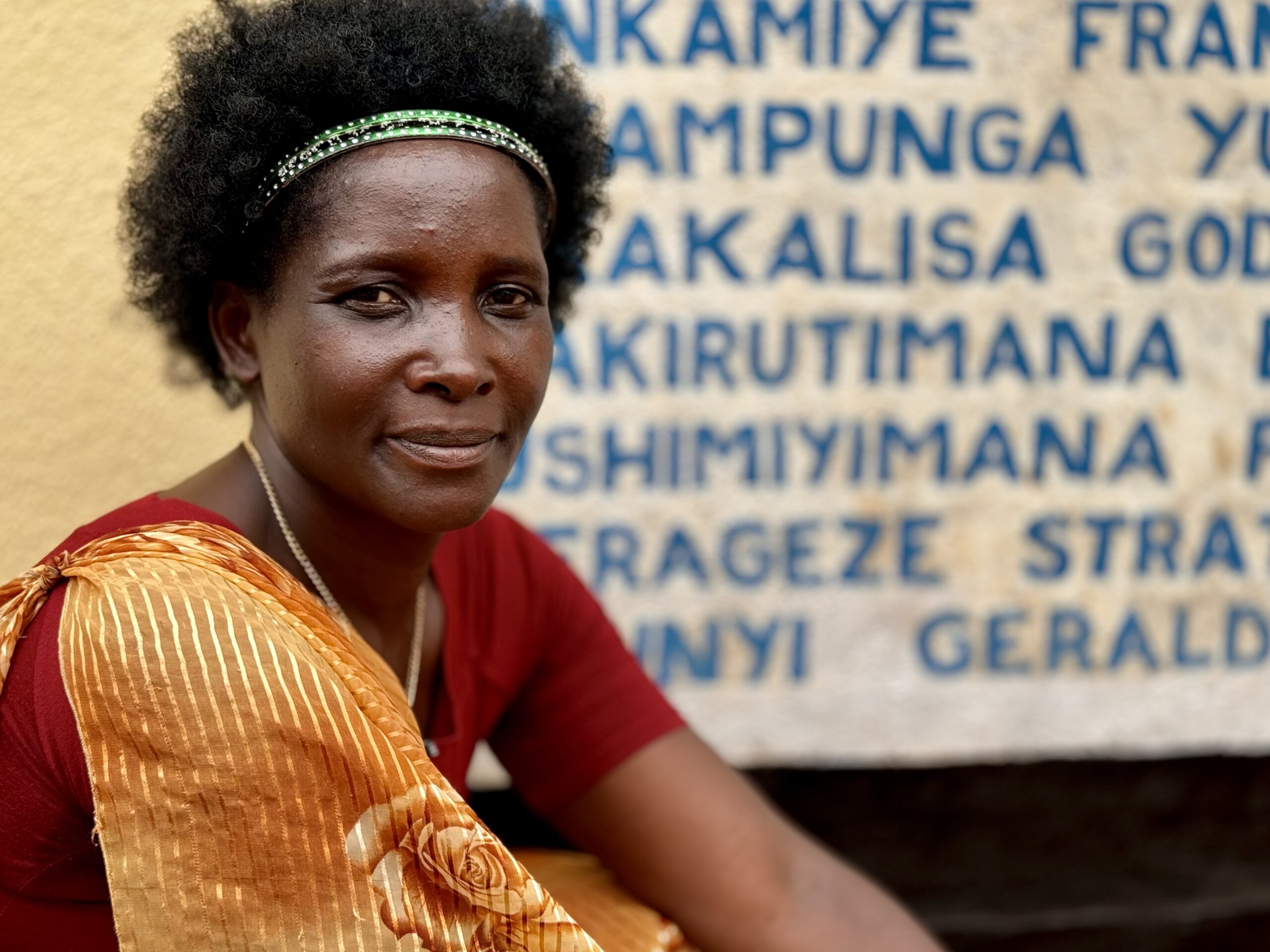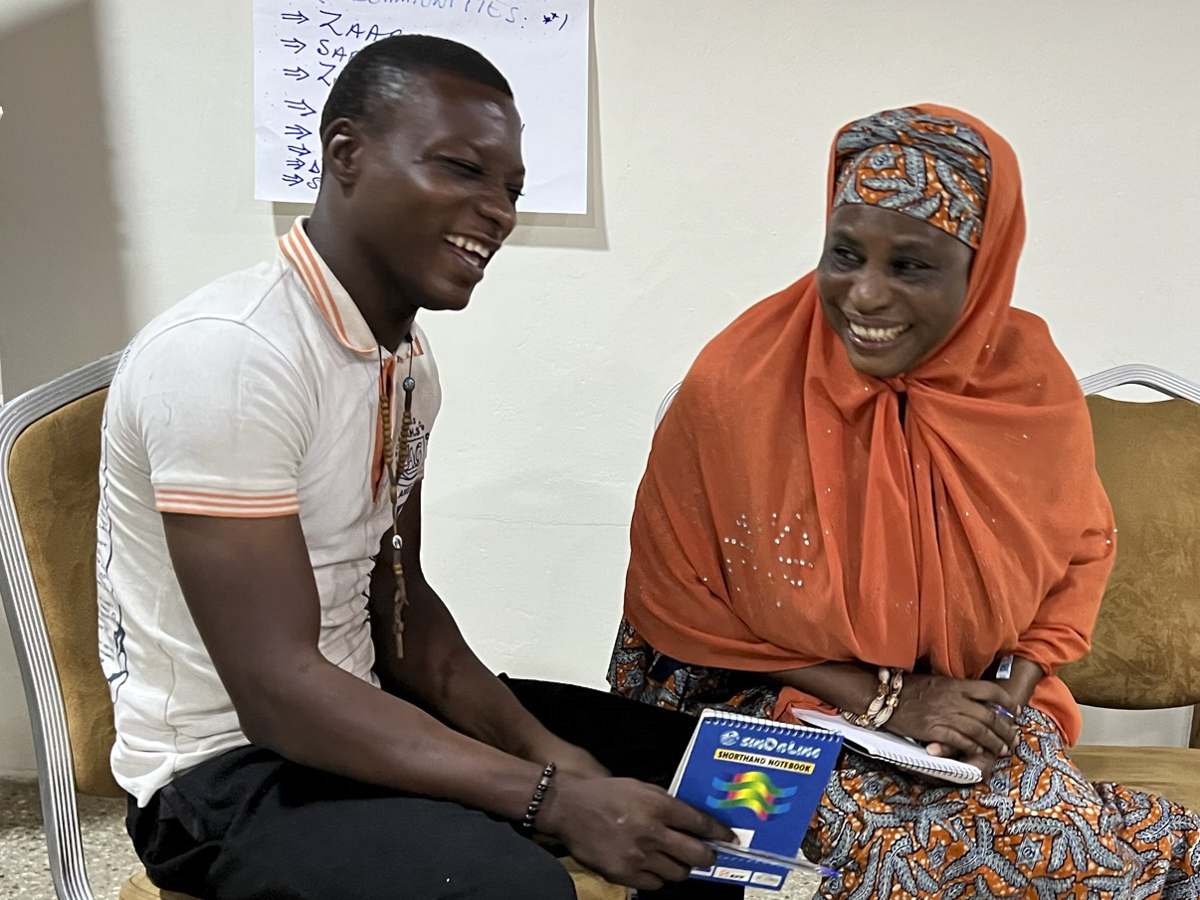The Role of Grassroots Organizing in Overcoming Development Challenges in Africa and Beyond January 22-26, 2024 Twenty-four people from the U.S., Ghana, Tanzania, and Namibia traveled to Rwanda…
Specioza’s Leadership Changes Lives in Mumeya
View a slide show of Specioza’s work as a PICO Rwanda leader
“PICO-Rwanda’s training makes me think in a different perspective. I have learned skills that have built my confidence which allows me to deal with new situations and deepen my understanding of how to fix the problem facing us. Sometimes I don’t feel like my Kinyarwanda is perfect. But my confidence comes because I speak the truth; whatever I am speaking is true.” Specioza Dusengimana, PICO-Rwanda Mumeya leader
Specioza is a powerful woman. She started her leadership journey under the “Jesus Tree” where she joined Ezra, Poline, Damascent, Yunia and other Mumeyans for training by Pr. John. A farmer with three children, Specioza soon emerged as someone with special determination. She was elected to the leadership team and was instrumental in defining the first community issue: building a clinic to address the high rate of mortality for birth-giving women in the area. Along with hundreds of others, she spent hours clearing the field, breaking stones and laying the foundation for the clinic. She was among the leaders who learned to negotiate with the mayor and national government officials to secure the funds to complete and staff the clinic. Just before completion, a mother lost her life in childbirth and Specioza adopted the little girl who was named Pico. Since then, no child or mother has died.
Ten years ago, there was no road, no clinic, no electricity, and no community. People thought of themselves as isolated and abandoned. Trained in the PICO model, Mumeyan women and men have organized their own labor and money and pressured government officials to make things happen. Now Specioza and 30 leaders gather for weekly meetings to plan their own future and hold themselves accountable to achieve their goals. Together they are building community and changing lives.
Mumeya leaders have applied the PICO model of organizing and involved 5000 people in community projects serving five villages with 30,000 inhabitants. After working five years to complete the 38 room full service health clinic, they worked over the next five years to bring electricity and water to the clinic and the homes of all five villages. They also built their own community center to store grain for farmers who joined the cooperative they organized, and as a meeting and education center for all community activities. They established formal committees with expanded leadership doing outreach and managing the water, electricity, and clinic projects.
Three years ago Specioza was invited by government officials to a district-wide health meeting. Because she learned how to act with power, Specioza questioned officials who were planning on putting a disease prevention center in a location where people were not organized to fully utilize the services. After describing the work of Mumeyans in building the clinic and community center, organizing labor and money to bring water and electricity, and training leaders in five surrounding villages, health officials changed their plans. The prevention center has been constructed next to the Mumeya clinic and provides services for the prevention of malaria, influenza, HIV/AIDS and other communicable diseases. Now, in addition to farming, Specioza is employed as a part time public health outreach worker for the villages near Mumeya.
Specioza and other leaders have internalized the PICO model of organizing and made it a part of their daily lives. They are providing training and support to leaders in Nyange undertaking the roofing tile enterprise; leaders in Matimba who are building a school; and leaders in Rusumo who are building their own health clinic. Their next Mumeya project is to establish a vocational training program to provide employment opportunities for the young people of their villages.
Little Pico is in grade school and excelling. Specioza and her husband have electricity in their home so Pico can read at night. They have water a few hundred meters from their front door. They have a cow that provides nourishing milk and fertilizer for their corn.
For Speciosa, this work is much more than building the clinic and the other projects. “You know, it is much more important to meet now and discuss issues relevant to our community. Just coming together and talking, the companionship, is so dear to me. Before this it was every man for himself, like city folk. Now we are closer together; we are a community in the real sense of the word, sharing our joys and challenges together. We are able to learn and turn theory into action – something that everyone can understand even though we did not have the chance to go to secondary school.”



